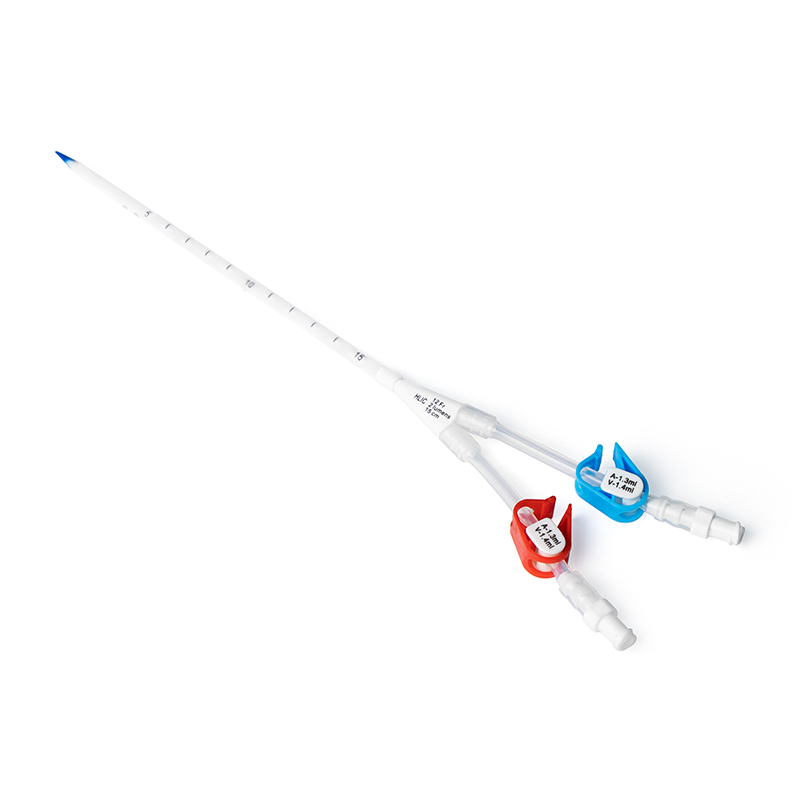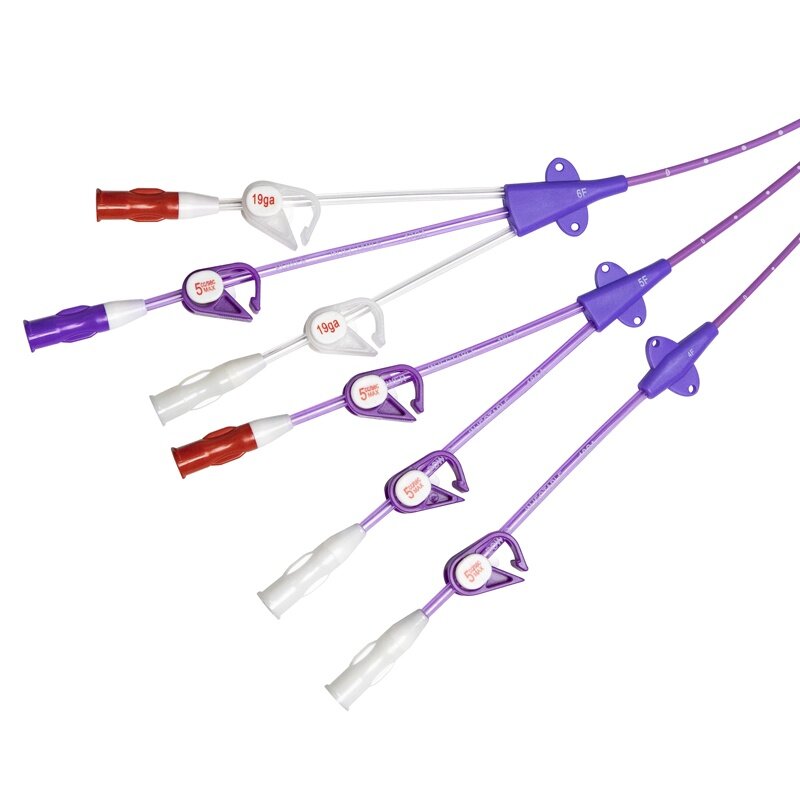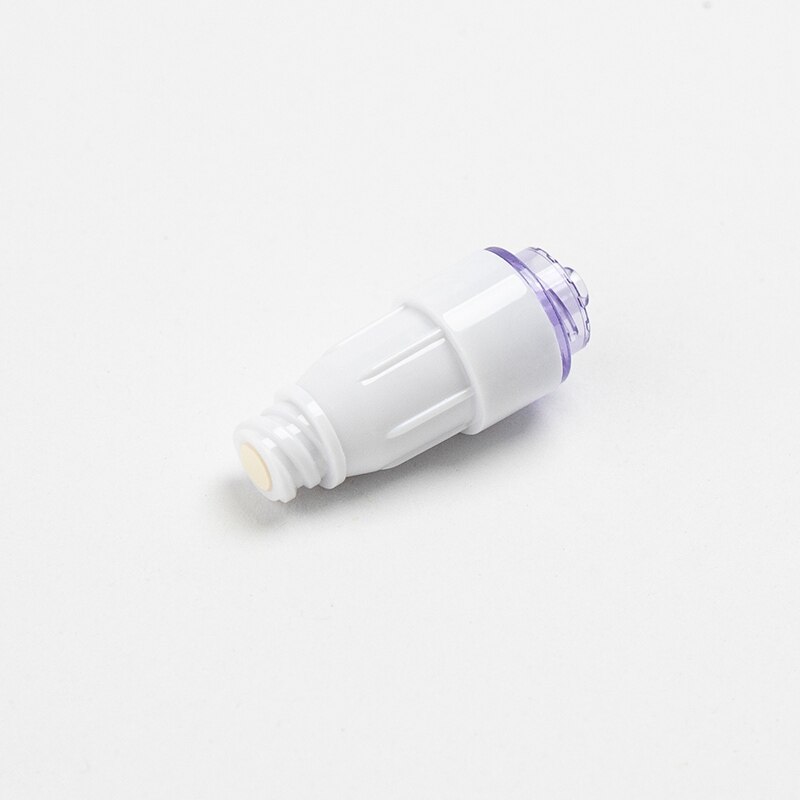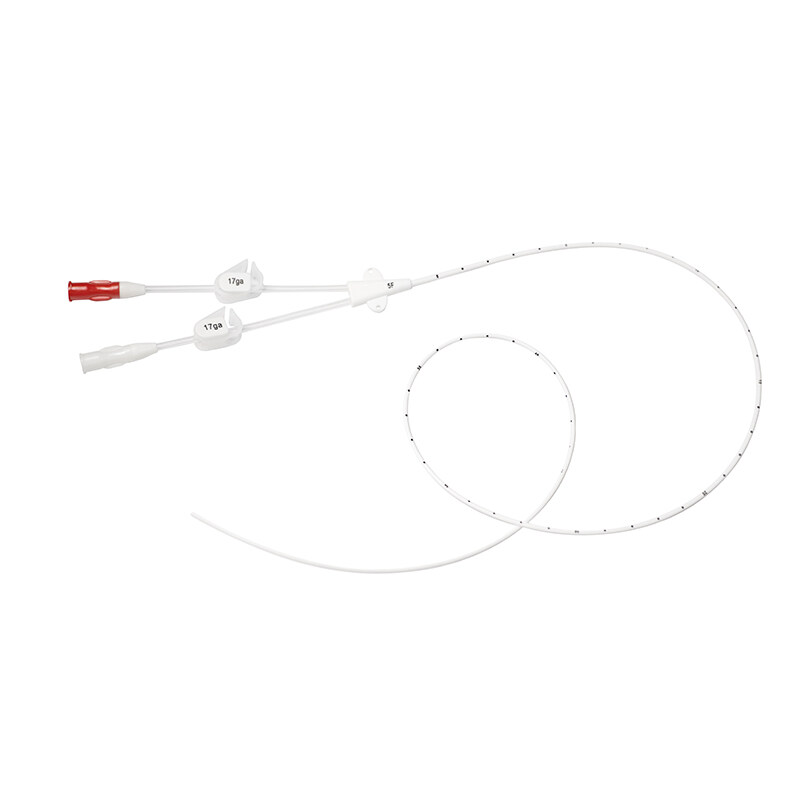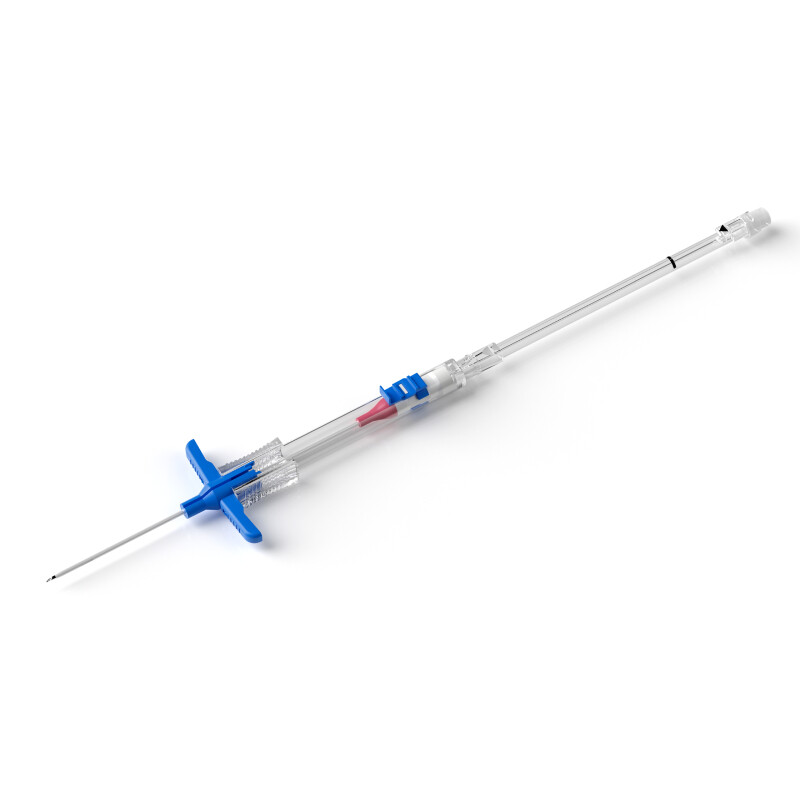Long-term hemodialysis catheters are devices used for patients who require regular hemodialysis but do not have a functioning arteriovenous fistula or graft. Chronic hemodialysis catheters are designed for long-term use and can remain in place for weeks or even months.
Long-term hemodialysis catheter kits can be a valuable tool for patients who require regular hemodialysis but do not have a functioning arteriovenous fistula or graft.
Features of Long Term Hemodialysis Catheter & Kit
* Smooth tube surface
* Advance medical polyurethane materials
* Staggered side hole design
* One -piece-shaped tip is soft and flexible
* Large side holes and double D profile
* Curved extension
* Enhanced polyester CUFF
* Rotatable suture wing

Long Term Hemodialysis Catheter & Kit
Parameters about Long Term Hemodialysis Catheter & Kit
| ITEM CODE |
LUMEN |
LENGTH/CM |
CATHETER TYPE |
EXTENSION TYPE |
| TF-ABC 14.5Fr2x24cm |
Dual |
24 |
Straight |
Straight |
| TF-ABC 14.5Fr2x28cm |
Dual |
28 |
Straight |
Straight |
| TF-ABC 14.5Fr2x32cm |
Dual |
32 |
Straight |
Straight |
| TF-ABC14.5Fr2x24cm W |
Dual |
24 |
Straight |
Curved |
| TF-ABC14.5Fr2x28cm W |
Dual |
28 |
Straight |
Curved |
| TF-ABC14.5Fr2x32cm W |
Dual |
32 |
Straight |
Curved |
| TF-ABC14.5Fr2x24cm J |
Dual |
24 |
Curved |
Straight |
| TF-ABC14.5Fr2x28cm J |
Dual |
28 |
Curved |
Straight |
| TF-ABC14.5Fr2x32cm J |
Dual |
32 |
Curved |
Straight |
Hemodialysis Catheter Kit Components
PU Catheter - Long Term Hemodialysis Catheter, Introducer needle, Needle, J/Straight tip Nitinol guidewire, Dilator, Scalpel, Syringe, Raulerson Syringe, Hemodialysis catheter dressing, Gauze, Suture with a needle, Surgical Towel, Surgical Drape, Heparin caps, Sealing caps.
Why Choose to Use Long Term Hemodialysis Catheters?
One of the primary advantages of long-term hemodialysis catheters is their ability to be used immediately. Unlike arteriovenous fistulas or grafts, which require several weeks to mature before use, catheters can be used right away.
Long-term hemodialysis catheter is especially beneficial for patients who require immediate dialysis or those who are awaiting the creation of a fistula or graft.
It Is Essential to Maintain Proper Hemodialysis Catheter Care
To reduce the risk of infection and blood clots, it is essential to maintain proper care and hygiene of the catheter. It includes regular cleaning of the insertion site and monitoring for signs of infection or inflammation, such as redness, swelling, or tenderness around the catheter site.
Patients should also be educated on the importance of maintaining good hygiene practices, such as handwashing and avoiding touching the catheter.
In addition to proper hemodialysis catheter care and hygiene, there are several other steps that can be taken to reduce the risk of complications associated with long-term hemodialysis catheters, such as using anticoagulant medications to prevent blood clots, using hemodialysis catheters made from materials that are less likely to cause infections or blood clots, and regularly monitoring the catheter for signs of damage or malfunction.

With proper care and monitoring, long term hemodialysis catheters can provide patients with a safe and effective way to receive the dialysis treatment they need.

